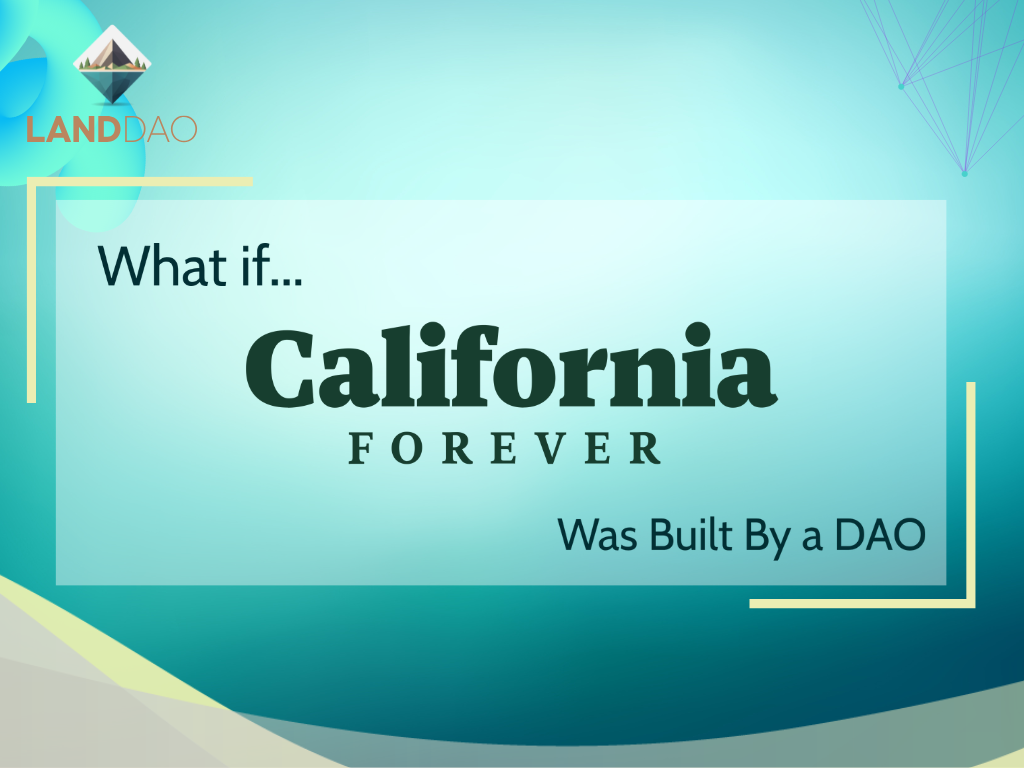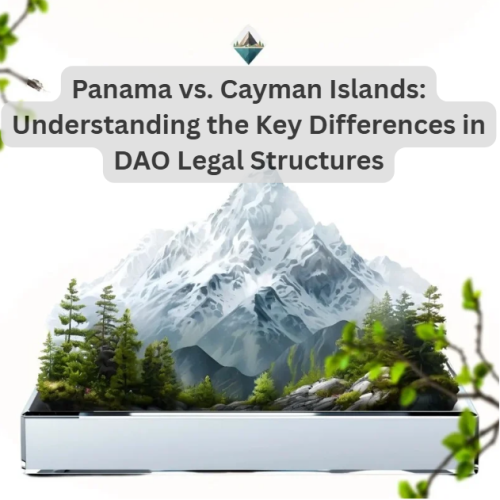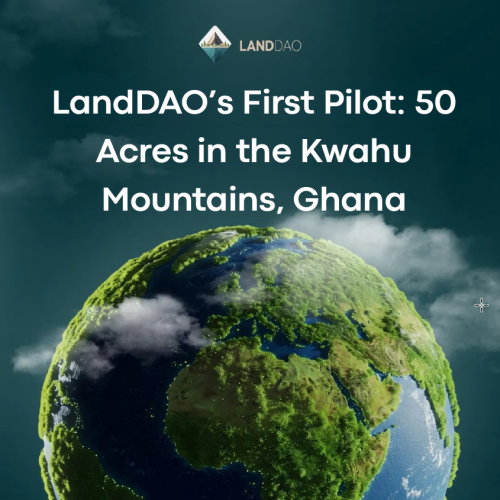In 2023, a group of Silicon Valley billionaires quietly bought over 50,000 acres of land in Solano County, California. Their plan: to build a brand-new city called California Forever. The secrecy, sudden land acquisitions raised eyebrows. Although the project promises walkable neighborhoods, renewable energy, and affordable housing, it also embodies a traditional, top-down model: a small group of wealthy investors shaping the future for everyone else.
But what if it didn’t have to be that way? What if the blueprint for a new city wasn’t written behind closed doors, but designed openly, collaboratively by a DAO.
California Forever and the Problem of Trust
The backlash to California Forever wasn’t just about land deals. It was about trust. For months, local communities were left in the dark. County officials had no answers. Farmers were approached with aggressive offers and even legal threats to sell. A new city was in the making, without the people who would be most affected by it.
This highlights a growing issue far beyond Solano County; How we build, buy, and govern land today is often opaque, centralized, and exclusive.
Large real estate projects rely on financial muscle, political lobbying, and insider access. Regular people, the ones who live, work, and build communities are largely spectators.
DAOs, imperfect as they are, offer a radically different starting point.
What a DAO Could Bring to City Building
At their core, DAOs are internet-native organizations that operate transparently on blockchains, with rules enforced by smart contracts and decisions made by community vote. Imagine if land acquisition, zoning plans, and resource allocation were openly proposed, debated, and voted on; not decided by a few billionaires or private equity firms.
In a DAO-run project, you wouldn’t need to guess who owns what, who benefits from development, or who gets priced out. The ownership structure, financial flows, and decision-making processes would be public, programmable, and (at least theoretically) democratic.
Of course, DAOs are not a perfect cure. Coordinating thousands of stakeholders is messy. Participation rates in DAO governance can be low. But the core idea; radical transparency and collective ownership, feels like the exact antidote to the California Forever model. And it’s not just theoretical. Projects like LandDAO are already building early versions of this idea.
LandDAO: Building With, Not Over Communities
LandDAO focuses on acquiring lands, improving them, and tokenizing the lands on the blockchain. It raises funds from DAO members, pools them together, and uses the funds to acquire physical land parcels. Unlike California Forever’s “buy first, explain later” approach, LandDAO’s model is upfront:
- Land is tokenized into fractionalized parcels on the blockchain.
- Decisions on land management are driven by community input and voting mechanisms.
- Huge economic investments are made in the communities where LandDAO operates
In essence, LandDAO doesn’t just change how land is owned, it changes how people participate in its stewardship.
It’s a reminder that land ownership, governance, and profit-sharing don’t have to be dictated by a handful of powerful players. They can be distributed, negotiated, and managed openly, even if the mechanics are still being refined.
The Hard Problems a DAO City Would Face
Of course, building a new city via DAO governance would face massive hurdles. Coordination among thousands of token holders could easily slow down decision-making. Legal recognition of DAO ownership structures remains unclear. Community engagement would have to be maintained over decades, which is yet to be achieved in Web3.
LandDAO, for its part, seems aware of these challenges. By focusing first on land acquisition and management, rather than full-scale city building, it creates a phased, realistic approach. It builds infrastructure before attempting self-governance at scale.
Any attempt to “build a city by DAO” would need to start small, experiment locally, prioritize making gradual progress rather than aiming for one big perfect plan.
Still, the thought experiment reveals something important: The core issue California Forever is facing isn’t ambition — it is exclusion. DAOs, despite their flaws, start from a different premise; that everyone affected should have a voice.
A Future Worth Building Together
California Forever may still materialize or it may end up as another cautionary tale of top-down urban planning. Either way, the conversation it sparked matters.
As climate pressures, housing shortages, and economic inequalities reshape our world, we will need to build new kinds of communities. Who controls that process and how open it is will define whether those communities are truly for the many, or just the privileged few.
DAOs like LandDAO don’t offer a perfect solution. But they offer a vital glimpse of a more participatory, transparent future, one where building “forever” isn’t just for billionaires, but for everyone.
Join the LandDAO Token Sale Waitlist for First Access to the $LNDAO Token Sale.





2 Comments
Your comment is awaiting moderation.
Thanks for sharing. I read many of your blog posts, cool, your blog is very good.
DAO city? That’s SimCity on chain 😂
Gonna need hella token votes just for plumbing 😂